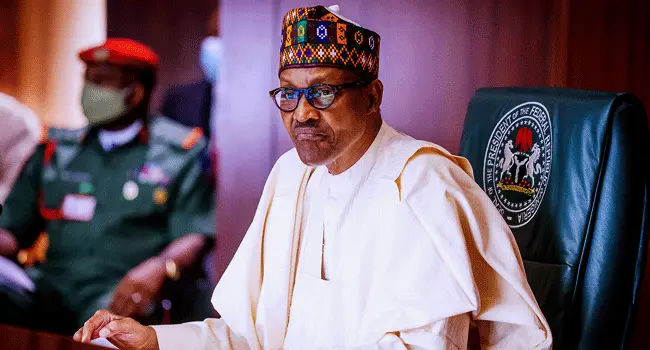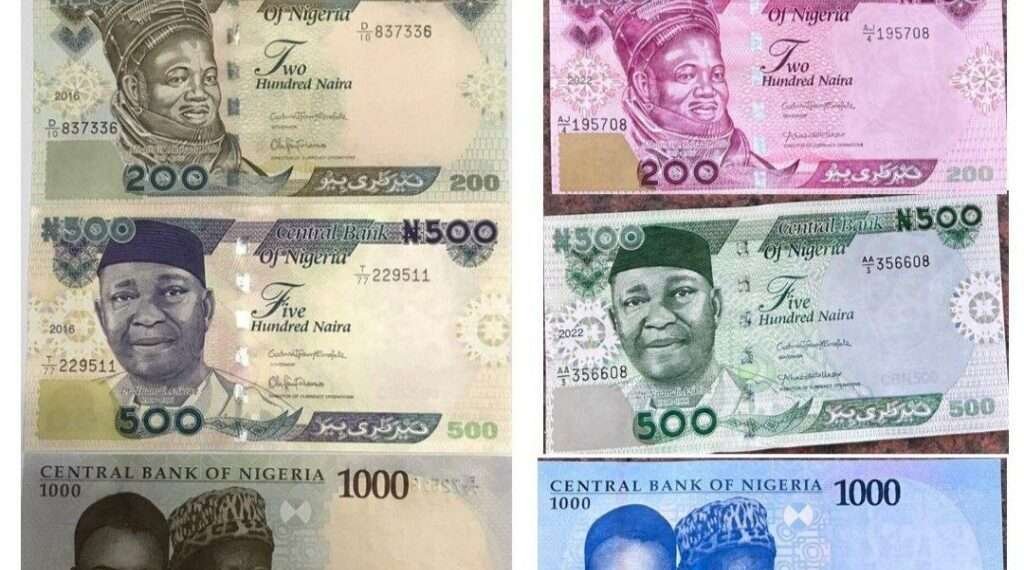There’s a saying that “money makes the world go round.” Well, in Nigeria, Africa’s biggest economy, its world has been robbed of its ability to go round; citizens’ dreams and business have come to a steep halt due to shortage of cash occasioned by the naira redesign.
When the Central Bank of Nigeria(CBN) announced the naira redesign it envisioned, no one foresaw that the deadline will have to be extended, the Supreme Court will have to deal with a lawsuit and that the economic atmosphere will be plunged into a tumult with long queues at banks.
Currency redesign may take place for many reasons. For Nigeria, it was seen as a means to check counterfeiting, to strengthen the economy and reduce the expenditure on cash management.
A number of African countries have demonetized older banknotes, turning to new-generation banknotes to help curb corruption, runaway inflation and money laundering.
For instance, Somalia is the latest country to announce plans to replace its old 1,000-shilling notes, last printed in 1991.
The Central African States of Cameroon, the Central African Republic, Chad, Congo, Equatorial Guinea, and Gabon have also begun using redesigned and upgraded currency notes that began circulating in mid-December 2022.
Also, Ghana redenominated her currency to the Ghana Cedi (GH¢) in July, 2007; Two of the reasons given by the Central Bank for the re-denomination were the increasing difficulty in maintaining accounting and statistical records and problems with accounting and data processing software.
Changes in color and sizes of banknotes came with the redenomination.
Nigeria, One Of Few Countries That Print And Mint Their Own Currencies In Africa
Only a handful of African countries, like Nigeria, Morocco, and Kenya have enough resources to print their own currencies or mint their own coins and even they sometimes supplement production with imports.
More than two-thirds of Africa’s 54 countries print their money overseas, mostly in Europe and in North America. Among the top firms that African central banks partner with are British banknote printing giant De La Rue, Sweden-based Crane, and Germany’s Giesecke+Devrient.
According to a recent study, over 40 African countries print their money in the UK, France and Germany, decades after independence. The article revealed that countries like Ethiopia, Libya and Angola, along with 14 other countries, place orders from British banknote printing giant, De La Rue.
Furthermore, six or seven other nations, including South Sudan, Tanzania and Mauritania, are said to print theirs in Germany’s Giesecke+Devrient. At the same time, most French-speaking African countries are known to print their money with France’s central bank and with the French printing company, Oberthur Fiduciaire.

On Wednesday, November 23, 2022, President Muhammadu Buhari boasted that Nigeria is among four of the 54 African countries that print their currencies locally.
Buhari said when he unveiled three redesigned naira notes earlier proposed by the Central Bank of Nigeria (CBN), that it became a thing of pride that Nigeria does not print its currencies abroad like many African countries.
“While this may not be apparent to many Nigerians, only four out of the 54 African countries print their currencies in their countries and Nigeria is one. And majority of African countries print their currencies abroad and import them the way we import other goods.
“That is why it is with immense pride that I announce that these redesigned currencies are locally produced right here in Nigeria by our Security Printing and Minting PLC.”
President Muhammadu Buhari
Fast forward to this year, the state has been thrown into pandemonium as Nigerians besieged various banks and ATMs to exchange their soon to be obsolete notes for new ones. Citizens have to endure long queues in order to get cash. Confusion has been strewn across the country amid the refusal by banks, filling stations, and traders to accept the old currencies.
Violent protests have been recorded in parts of the country, including in Ogun, Oyo and Akwa Ibom in the country’s south.
Some protesters said they were directed to the CBN to exchange their old notes by the commercial banks, whilst CBN redirected them to commercial banks.
People say they have been forced to skip meals and have been unable to pay for basic services like bus or taxi fares in a country where cash is still widely used. An estimated 40% of the population do not have access to bank accounts.
Businesses have been closed and the average Nigerian is forced to starve. Herders and farmers who transact business on cash and carry basis are struggling to make sales because of cash scarcity.
Those with the new notes choose to patronize the goods at a cheaper price, causing these farmers to incur losses and those who can’t sell at a cheaper price are forced to return with their goods.
Nonetheless it is pertinent to note that, chaos that has ensued from the exchange of old naira notes for new ones is yet to be solved. Many Nigerians are unable to swap their old currency due to shortage of the redesigned ones.
In a bid to salvage the situation, President Muhammadu Buhari has extended the use of the old 200 naira notes.
The Supreme Court of Nigeria, however, is set to adjudicate a lawsuit filed by different Governors on the government’s policy of scrapping old banknotes, on February 22, 2023, three days before the general election.
No Votes Buying, Thanks To Currency Redesign
In an unprecedented move, President Buhari approved a currency redesign in an election year to quell the plans of politicians who hoard large sums of money to be used for vote buying during electoral campaigns. In his address on Thursday, February 16, 2023, the President said;
“I am aware that this new monetary policy has also contributed immensely to the minimization of the influence of money in politics. This is a positive departure from the past and represents a bold legacy step by this administration, towards laying a strong foundation for free and fair elections.”
President Muhammadu Buhari
It is needless to say that naira shortage will affect voters’ choice in the elections. In the absence of money to influence votes, the electorate can freely exercise their franchise which will in turn generate fair results. Also, the verdict from the lawsuit will undoubtedly influence the sphere of elections.
Nonetheless, President Buhari may be shooting himself in the foot with the currency redesign. Already, the hardship caused by the naira redesign policy is making the ruling party unpopular. The APC’s presidential candidate, Bola Ahmed Tinubu, may have to bear the brunt.
Many voters will also need cash if they have to travel to the polling stations on election day. Unless the situation improves before February 25, there could be low voter turnout, which will in turn affect the outcome of the polls.
The Spokesperson of the Northern Elders Forum (NEF), Hakeem Baba-Ahmed, even opined that the redesigning of the Naira is the biggest de-marketing strategy against the ruling All Progressives Congress(APC).
Five days from today, the Presidential fate of Nigeria will be sealed but before that, the redesigned currency should be within the ordinary Nigerian’s arms reach.
READ ALSO: North Korea Confirms ICBM Test, Threatens More Powerful Steps




















